
Tomu Uchida
Nascimento : 1898-04-26, Okayama, Okayama Prefecture, Japan
Morte : 1970-08-07
História
Uchida started out at the Taikatsu studio in the early 1920s, but came to prominence at Nikkatsu, adapting literary works with the screenwriter Yasutarō Yagi in a realist style. His 1929 film A Living Puppet (Ikeru ningyo) was selected as the fourth best film of the year by the film journal, Kinema Junpo. Many of his 1930s films featured the actor Isamu Kosugi. One such work, Policeman (Keisatsukan), has been called "a tremendously stylish gangster movie about the love-hate relationship between a cop and a criminal, once childhood friends" It is Uchida’s only surviving complete silent film. Uchida borrows from Hollywood gangster films and expressionist techniques in a story of a young policeman tracking down an old friend who is now a criminal. His work from the 1920 and 1930s possess a leftist social commentary and were often some of the most critically acclaimed films of the time. Kinema Junpo selected Jinsei Gekijo as the number two film of 1936, Karininaki Zenshin as the best film of 1937, and Tsuchi as the best film of 1939. The latter was praised for its realistic depiction of the lives of poor Meiji-period tenant farmers. Unfortunately, few of Uchida's prewar works survive in their entirety.
In 1941, Uchida quit the Nikkatsu studio, and after failing to start his own production company, in 1943 began to work with the Manchukuo Film Association, although he never completed a film there. In 1945 he was taken prisoner and held in Manchuria until 1954, when he returned to Japan.
Upon he return, he joined the Toei studio. His post-war movies reveal a strong genre stylist with no immediately discernible themes, much like many golden-age Hollywood directors. Uchida effortlessly directed chamber dramas, comedies, and samurai epics, often in color, and with a forward-looking dose of irony.

Director
No sexto e último episódio, Rentaro Mikuni rouba a cena como Baiken Shishido, inimigo de Musashi. Mikuni é o vilão do filme, mas ele é um marido e pai dedicado. Ele tenta matar Musashi apenas para vingar a morte de seu cunhado. Enquanto Baiken (que empunha uma corrente e foice contra a espada de Musashi) é um personagem muito humano e as emoções que Mikuni exibe em sua performance são bastante críveis e atraentes.

Director
With his penultimate film, Uchida revisited one of his popular prewar titles, 1936’s Theatre of Life, an adaptation of Shiro Ozaki’s eponymous novel. Three-time Seijun Suzuki collaborator Goro Tanada wrote a gangsterized adaptation of Ozaki’s story for Uchida at a time when the yakuza had eclipsed the samurai genre as Toei's main cash crop. Protagonist Hishakaku murders a man in a quarrel over a barmaid and goes to jail. In his temporary absence, his girlfriend Otoyo, a former geisha, falls for Hishakaku’s brother, inciting a dangerous love triangle that, in typical yakuza fashion, ends tragically.
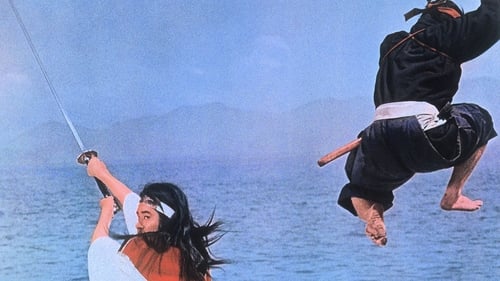
Screenplay
Neste terceiro filme da Trilogia do Samurai de Hiroshi Inagaki (baseado no livro "Musashi" de Eiji Yoshikawa), Musashi (Toshirô Mifune) é desafiado pelo confiante e habilidoso Sasaki Kojiro (Koji Tsuruta), com o qual duelará dentro de um ano. Neste período decide viver nos arredores de uma vila cultivando legumes, enquanto ainda é perseguido por Otsu (Kaoru Yachigusa) e Akemi (Mariko Okada), ambas apaixonadas por ele. Conforme a data do duelo se aproxima, Musashi é forçado a tomar uma decisão que concilie ou não seus sentimentos por Otsu e sua paixão pelo caminho do guerreiro, ao mesmo tempo que se prepara para o maior desafio de sua vida.

Director
Neste terceiro filme da Trilogia do Samurai de Hiroshi Inagaki (baseado no livro "Musashi" de Eiji Yoshikawa), Musashi (Toshirô Mifune) é desafiado pelo confiante e habilidoso Sasaki Kojiro (Koji Tsuruta), com o qual duelará dentro de um ano. Neste período decide viver nos arredores de uma vila cultivando legumes, enquanto ainda é perseguido por Otsu (Kaoru Yachigusa) e Akemi (Mariko Okada), ambas apaixonadas por ele. Conforme a data do duelo se aproxima, Musashi é forçado a tomar uma decisão que concilie ou não seus sentimentos por Otsu e sua paixão pelo caminho do guerreiro, ao mesmo tempo que se prepara para o maior desafio de sua vida.
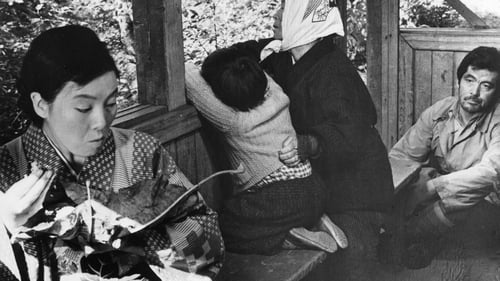
Director
Three robbers escape with loot from a heist before one of them kills the others. Their corpses wash up near the aftermath of a maritime calamity, provoking a policeman's interest.

Adaptation
Neste segundo filme da Trilogia do Samurai de Hiroshi Inagaki (baseado na obra literária de Eiji Yoshikawa) Miyamoto Musashi parte em busca de seu aprimoramento como guerreiro, mas acaba encontrando dificuldades muito maiores do que o mero cruzar de espadas.

Director
Neste segundo filme da Trilogia do Samurai de Hiroshi Inagaki (baseado na obra literária de Eiji Yoshikawa) Miyamoto Musashi parte em busca de seu aprimoramento como guerreiro, mas acaba encontrando dificuldades muito maiores do que o mero cruzar de espadas.

Screenplay
As tentativas de Musashi para arranjar um duelo com o renomado mestre Yagyu Sekishusai o coloca numa situação ruim diante dos alunos do mestre, o que o leva ao desenvolvimento de sua famosa técnica de duas espadas. Enquanto isso, o homem que se tornará seu maior rival, Sasaki Kojiro, faz uma aparição.

Director
As tentativas de Musashi para arranjar um duelo com o renomado mestre Yagyu Sekishusai o coloca numa situação ruim diante dos alunos do mestre, o que o leva ao desenvolvimento de sua famosa técnica de duas espadas. Enquanto isso, o homem que se tornará seu maior rival, Sasaki Kojiro, faz uma aparição.

Adaptation
Depois de três anos de estudo, Takezo transformou-se em um samurai bem-educado, e tomou um novo nome - Miyamoto Musashi. Apesar de seu amor por Otsu, ele sai para continuar a seu treinamento, desafiando os espadachins da Yoshioka Dojo e lanceiros do templo Hozo'in.

Director
Depois de três anos de estudo, Takezo transformou-se em um samurai bem-educado, e tomou um novo nome - Miyamoto Musashi. Apesar de seu amor por Otsu, ele sai para continuar a seu treinamento, desafiando os espadachins da Yoshioka Dojo e lanceiros do templo Hozo'in.
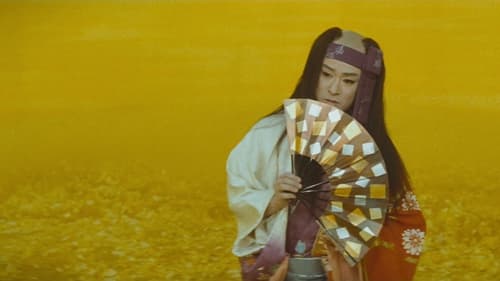
Director
A court fortune-teller loses his mind after a conspiracy leads to the death of his lover. Hope appears to be on the horizon after he becomes romantically involved with his dead lover’s twin sister, but more complications arise thanks to a chance encounter with a clan of shape-shifters.

Director
Depois de Takezo (Musashi) e seu amigo Matahachi acabarem no lado perdedor da batalha de Sekigahara, Matahachi decide começar uma nova vida com uma mulher mais velha. Quando Takezo retorna para casa para contar à noiva de Matahachi, Otsu, e mãe, Obaba, o que aconteceu, ele acaba sendo caçado como um fugitivo - e pendurado no topo de uma árvore por um enigmático monge.
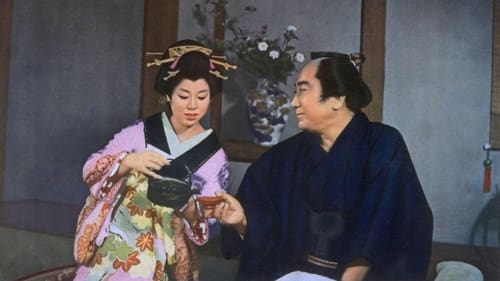
Director
A successful textile industrialist from the provinces, who is beloved by his employees for his kindness, cannot find a wife because of a disfiguring birthmark on his face. Even the courtesans in Yoshiwara refuse to entertain him, until an indentured peasant prostitute, Tamarazu, takes the unsavoury assignment and treats him with brash tenderness.
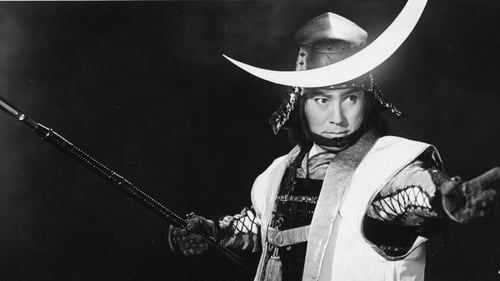
Director
This subversive period film features a hotheaded young samurai, Kurodo, who threatens to commit harakiri in response to the humiliation meted out to his family by the Shogun. The film critiques the inhumanity of feudal obligations, and Uchida’s direction slyly satirizes the contemporary cinematic audience, whose taste for onscreen bloodshed is mirrored in a crowd gathering to watch the protagonist’s planned suicide. The Master Spearman is imbued with Uchida’s characteristic blend of dark humor and stylized action, and Ryutaro Otomo gives an admirable performance in the lead.

Director
The adopted son of an Osaka courier falls in love with a prostitute and, discovering that she is about to be purchased by a client, steals money from his employer to redeem her. Hunted criminals, the two young lovers take flight to Yamato, but, as in Chikamatsu's other domestic tragedies of love and duty (known as sewamono), they must be pursued and their passion destroyed by death. Favourite Uchida themes, such as the indenturing of a prostitute (cf. YOSHIWARA; A BLOODY SPEAR AT MT. FUJI), and his characteristic emphasis on performance and theatrical artifice re-emerge here; but the daring device of having Chikamatsu appear as a character - not unlike having Shakespeare interpolated into a film adaptation of one of his plays - is just one of many surprises this remarkable film holds. “Extraordinary” (Donald Richie).

Director
Master swordsman, Tsukue Ryunosuke is confronted by the families of his victims. Will justice be served for the lost innocent lives? The conclusion of the famed Jidaigeki series is an amazing film, with a completely different perspective on the story from the later versions. While the international audience is more familiar with the “Sword of Doom” and “Satan’s Sword” versions of Daibosatsu Toge (The Great Bodhisattva Pass), the “Souls in the Moonlight” trilogy casts an entirely different light on Ryunosuke and his motives. Can this brutal killer be brought to justice, or is living his life as a blind wanderer a more terrible fate? His sword skills have not diminished, nor has his desire to kill!

Director
A drama about relations between Japanese immigrants and the indigenous Ainu on Hokkaido, the most northerly island of Japan. From a novel by Taijun Takeda.

Director
This is the second installment of the trilogy based on Japan’s greatest novel “The Great Bodhisattva Pass”, following the life and times of bloodthirsty samurai, Tsukue Ryunosuke. Blinded in an explosion and further injured from a fall, the master swordsman is taken in by Otoyo, a woman who falls in love with him. Under Otoyo’s dedicated care, Ryunosuke’s physical and emotional wounds seem to heal. However, deep inside, the demons that drive him to kill yearn to resurface. Meanwhile he is being pursued by Utsugi Hyoma, a young samurai seeking to avenge his brother’s death at Tsukue’s hands. Hyoma is being aided along the way by the clever thief Shichibei.
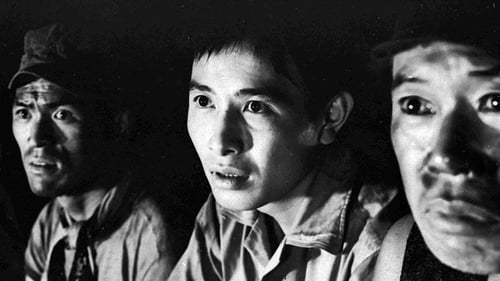
Screenplay
Based on a 1956 television feature on Japan’s national network, NHK, this is one of Uchida’s rarest films. A socially conscious drama with a contemporary backdrop, Dotanba focuses on the attempts to rescue a group of trapped miners. The title is a figure of speech — (essentially “last minute” or “eleventh hour”) — that refers to a situation of peril. The film boasts a script co-written by Uchida and Akira Kurosawa’s frequent screenwriter, Shinobu Hashimoto, and stars Kurosawa’s frequent star Takashi Shimura.

Director
Based on a 1956 television feature on Japan’s national network, NHK, this is one of Uchida’s rarest films. A socially conscious drama with a contemporary backdrop, Dotanba focuses on the attempts to rescue a group of trapped miners. The title is a figure of speech — (essentially “last minute” or “eleventh hour”) — that refers to a situation of peril. The film boasts a script co-written by Uchida and Akira Kurosawa’s frequent screenwriter, Shinobu Hashimoto, and stars Kurosawa’s frequent star Takashi Shimura.

Director
First part of the famous Dai-bosatsu toge trilogy, based on Kaizan Nakazato’s unfinished long series of novels (41 books, written from 1913 to 1941). Set in the last period of the Tokugawa Shogunate, Daibosatsu Toge tells the story of Tsuke Ryunosuke, a nihilistic swordmaster who doesnt hesitate to kill anyone, bad or good. Despite the authors explicit refusal, the series were later made into plays and movies several times.

Director
A humble page fathers a child by the daughter of a clan official and is banished. Years later, the child, now a stable boy, is reunited with his father, but feudal codes threaten their happiness. Uchida’s poignant masterpiece condemns the inflexible class system and launches an indictment of values that favor symbolic objects over human life. The film’s focus is on character rather than swordplay, and charged performances—especially child actor Motoharu Ueki—add to the emotional power.

Director
Tomu Uchida's Gyakushu Gokumon Toride is a masterpiece which treats class struggle in the end of Samurai era(it's a fiction). The story is based on the legend of William Tell, changed at the end of age of Samurai.

Director
This adaptation of a Hideji Hojo novel, about the historical uprising of the Kuroda clan in 1633, is told through the eyes of retainer, Daizen. As his clan’s new leader, Tadayuki, becomes increasingly militant in his opposition to the Tokugawa shogunate, Daizen is forced to reconcile his loyalty to the clan with his loyalty to Tadayuki, who seems dead set on entangling the clan in destructive conflict. The Kuroda Affair’s mise-en-scène is said to have influenced future Toei director Eiichi Kudo. The film also features two of the greatest stars of Japanese period cinema, Chiezo Kataoka and Ryutaro Otomo.
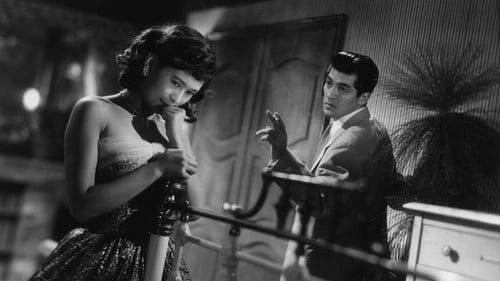
Director
Nobuko is a widow who lives with her daughter-in-law Tamiko and her brother Junjiro. The family's gatekeeper, Komatsu, is attracted to Tamiko, but she is encouraged to marry a doctor and he is afraid to tell her his feelings.
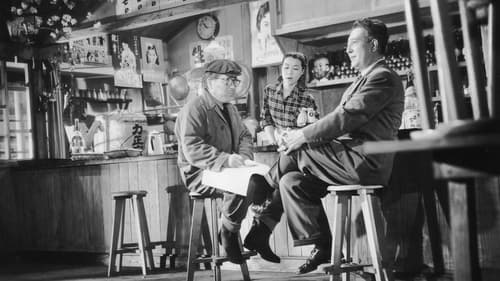
Director
Takes place in one place, a beer hall, over the course of one evening. Uchida employs this concentration of setting and time to fashion a microcosm for a group portrait of Japan. One by one, the regulars of the bar appear: the pianist who dreams of becoming a composer but has disappeared from the music world after a knifing; a stripper who had planned to be a ballet dancer; an elderly painter trying to make a living at pachinko, and who rues his art having been used for militarist propaganda during the war; a young waitress considering elopement; a colonel turned real estate broker who attempts to rouse the crowd in military song until he realizes the tune has been transformed by marchers in the street into a leftist chant. The "twilight" is more than just a time of day; here, it is a state of being, a suspension between past and present, between the camaraderie of the saloon and the harsh world outside.
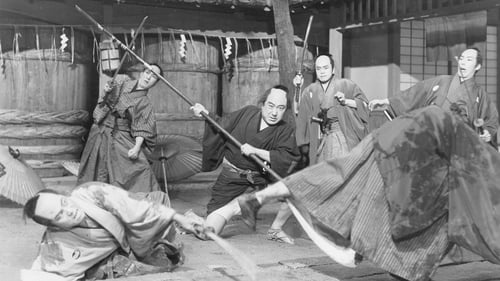
Director
No final do século XVIII, um jovem samurai beberrão viaja com seus dois servos pela estrada de Tokaido, rumo a Edo (atual Tóquio). Ao longo do caminho, são acompanhados por todo tipo de pessoas que fazem o mesmo trajeto: andarilhos, vendedores, artistas, camponeses, um menino órfão e também, segundo as autoridades, um ladrão de identidade desconhecida.

Director
History film directed by Tomu Uchida.
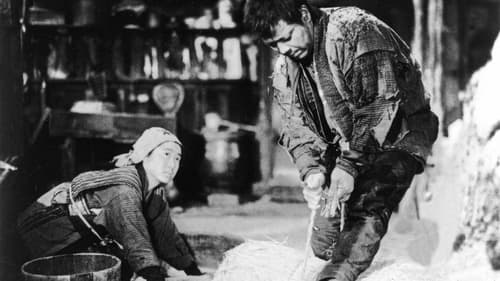
Director
Kanji is a poor peasant widower who struggles to earn a living for his daughter and himself and to pay off his father-in-law's debts.

Director
One of Uchida’s early sound films, Unending Advance is based on a curious story by Yasujiro Ozu, in which an examination of the quotidian problems of a middle-aged salaryman and his family segues into an idyllic dream of an implausible future. The surviving print, although incomplete, offers an essential glimpse into Uchida’s prewar period, when he was associated more with realist dramas than with the period films that dominated his work after the war.

Director
A 1937 Japanese language film directed by Tomu Uchida, starring Ryo Akaboshi, Mitsuru Date and Hisao Furutani.

Director
Two brothers run a factory canning crabs. The elder brother Kotaro is righteous and insists on honesty. The younger brother is fixated on money. They are polar opposites. When a boat sails out looking for crab and does not return one day the brothers begin to argue over how to run their facility. They had just received a large order from a foreign country and had obtained a loan from a lender that needed to be repaid.

Director

Director
Father, son Kentaro and daughter Ochiyo, who live on the banks of the Sumida River, regain their love for each other after family discord and separation. The film is considered lost.
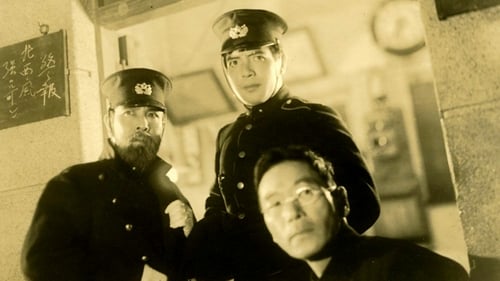
Director
Itami, a young policeman, meets his high school friend, Tetsuo, a gangster, at a roadblock. As they rekindled their friendship, a complex relationship is established between them.

Director
Lost film, directed by Tomu Uchida. This film is a very funny comedy that makes fun of the moral code of the samurai Bushido, which has become obsolete and turned into an empty form during the period of feudalism.

Director
The second part of the melodrama based on the novel Les Misérables by Victor Hugo, the action of which is transferred to the era of the Meiji Revolution. The film has not survived.

Director
The first part of a fascinating melodrama based on Victor Hugo's Les Misérables, the action of which is transferred to the era of the Meiji Revolution. The film has not survived.
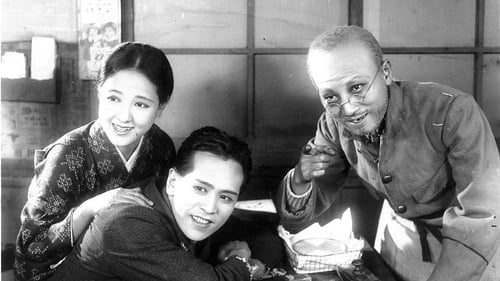
Director
Sweat (1929) is a slapstick riff on tendency-film themes, as a bored young millionaire has his clothes stolen by a tramp; dressed in the tramp’s clothes, he has to accept work as a labourer. As the hero ends up building the mausoleum he had himself commissioned.

Director

Director
A pre-war sports movie by director Tomu Uchida. This story is set at the Waseda-Keio regatta. This was shot at the banks of the Sumida River, where the regatta is still held today. The main stroke role of Mochizuki was played by young star Tsunemi Hirose. Mochizuki, who enrolled in A University that lost the previous year gains the trust of the President's niece Mitsuko (Shizue Natsukawa) but a spy from the other side uses this relationship to create a scandal. The regatta approaches, with Mochizuki not able to participate... The supporters and atmosphere of student sports at the time are well presented.

Director
An early silhouette animated film by Hidehiko Okuda, Hakusan Kimura and Tomu Uchida. The original story is a Buddhist tale of a young lady who saved a crab (a spiritual being according to Japanese Buddhist faith) from being eaten, and was later saved from danger by the same crab.

Director
A moral fable about discovering money that somebody has dropped

Director














